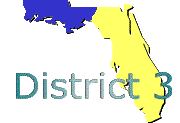

|
District 3: |
|
Send Your |

Rail Operations Coordination Equipment Package |
 |
Description: |
This equipment package provides strategic coordination between rail operations and traffic management centers. It receives train schedules, maintenance schedules, and any other forecast events which will result in highway-rail intersection (HRI) closures from Rail Operations. The provided information is used to develop forecast HRI closure times and durations which may be applied in advanced traffic control strategies or delivered as enhanced traveler information. This equipment package includes the processing and algorithms necessary to derive HRI closure times and the communications capabilities necessary to communicate with rail operations and interface to the traffic control and information distribution capabilities included in other Traffic Management Subsystem equipment packages.
|
||||||||||||||||||||||||||||||||
Included in: |
Bay County Transportation Management Center City of Pensacola Traffic Management Center City of Tallahassee Transportation Management Center Escambia County Traffic Management Center Escambia/Santa Rosa County Multimodal Transportation Operations Center Okaloosa County Transportation Management Center Walton County Transportation Management Center |
||||||||||||||||||||||||||||||||
Processes: |
|
||||||||||||||||||||||||||||||||
User Service Requirements (fully or partially addressed): | |||||||||||||||||||||||||||||||||
|
|||||||||||||||||||||||||||||||||
| The detailed process and user service requirement traceability information on this page was extracted from the National ITS Architecture. Consult the National ITS Architecture web site for more information. | |||||||||||||||||||||||||||||||||
